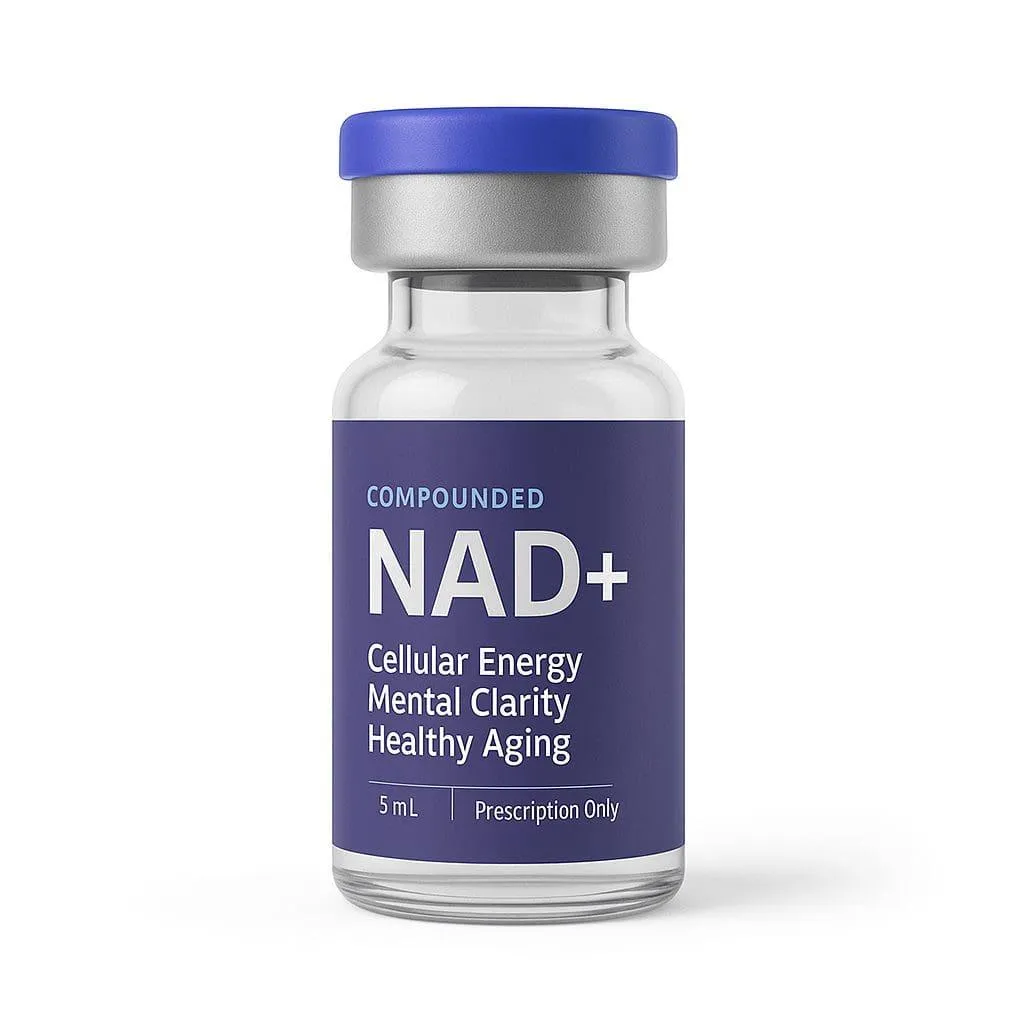
What Exactly Is NAD+
What Exactly Is NAD+?
NAD+ is a term you may have seen in health blogs, wellness clinics, or anti-aging treatments, but what exactly is it, really? Is it an enzyme? A molecule? Or A peptide?
Let’s make it easy to understand:
NAD+ stands for Nicotinamide Adenine Dinucleotide a name that may sound complicated but plays a simple and important role in your body.
It’s a molecule found in every single cell, helping to turn the food you eat into energy.
NAD+ is also involved in many body processes, including brain function, cell repair, and aging.

What Is NAD+?
NAD+ (short for Nicotinamide Adenine Dinucleotide) is a natural molecule found in every living cell in your body. You can think of it as a helper molecule — it works behind the scenes to keep your body running smoothly.
Here’s what makes NAD+ important:
It helps turn the food you eat into usable energy.
It supports your cells in repairing damage and staying healthy.
It helps your brain stay focused and alert.
It plays a role in how fast or slow you age.
As we get older, or deal with stress and illness, our NAD+ levels can drop and that’s when we start to feel low on energy, foggy, or just “off.”
Is NAD+ an Enzyme?
NO, NAD+ is not an enzyme.
What do enzymes do?
Enzymes are proteins that speed up chemical reactions in your body.
They help with everything from digestion to energy production.
So where does NAD+ fit in?
NAD+ acts as a coenzyme, which means it helps enzymes perform their functions.
In particular, NAD+ is involved in reactions that create cellular energy (ATP) — the fuel your body needs to move, think, and heal.
In simple terms:
NAD+ is not the enzyme itself, but without it, many enzymes couldn’t do their job — especially the ones that keep you feeling energized and balanced.
Is NAD+ a Peptide?
NO — NAD+ is not a peptide.
What is a peptide?
Peptides are short chains of amino acids.
They’re like tiny building blocks that make up proteins.
Your body uses peptides for things like skin health, hormone signals, and muscle repair.
Why NAD+ is different:
NAD+ is not made from amino acids.
Instead, it’s made from vitamin B3 (niacin) — a type of vitamin found in foods like chicken, tuna, and mushrooms.
This makes NAD+ a vitamin-based molecule, not a protein or peptide.
Why NAD+ Matters for Your Health
Now that we know NAD+ is a molecule (not an enzyme or peptide), let’s talk about why it’s so important for your health and wellbeing.
NAD+ helps keep your body running smoothly, and when your levels drop, you can really feel it.
Here’s what NAD+ supports:
Energy production – It helps turn food into energy, so you don’t feel tired or sluggish.
Brain function – NAD+ supports memory, focus, and mental clarity.
Cell repair – It helps fix damaged cells and protect against aging.
Stress recovery – Low NAD+ is linked to burnout, poor sleep, and mood swings.
As we age, NAD+ levels naturally decrease. This can lead to symptoms like:
Constant fatigue
Brain fog
Poor concentration
Increased anxiety or low mood
Conclusion: NAD+ — More Than Just a Molecule
To sum it up:
NAD+ is not an enzyme or a peptide — it’s a powerful molecule your body needs to produce energy, repair cells, and stay mentally sharp.
As your NAD+ levels drop with age or stress, you might feel tired, foggy, or overwhelmed. That’s why NAD+ therapy is gaining attention — it offers a natural way to recharge your body and support your mental and physical wellness.